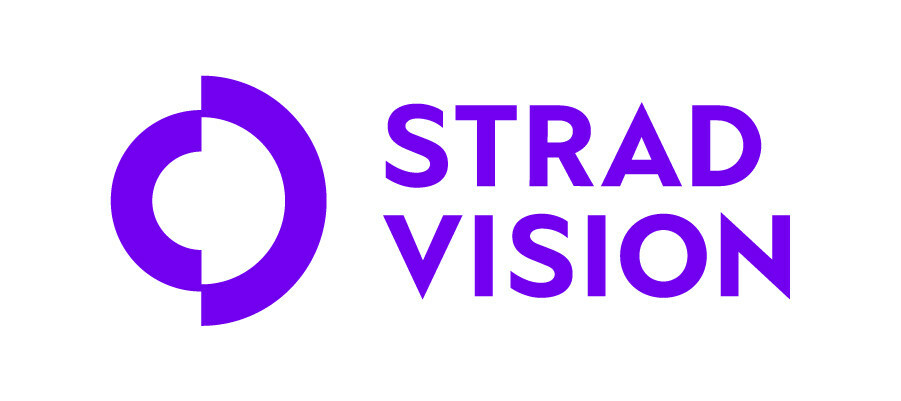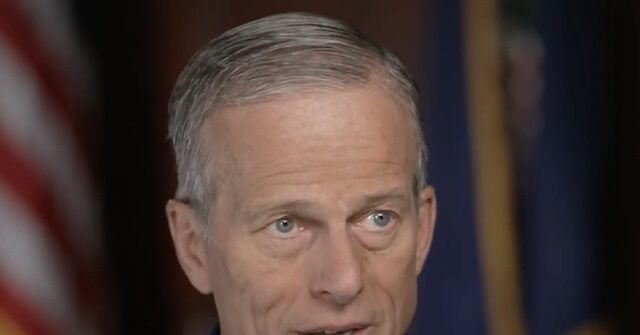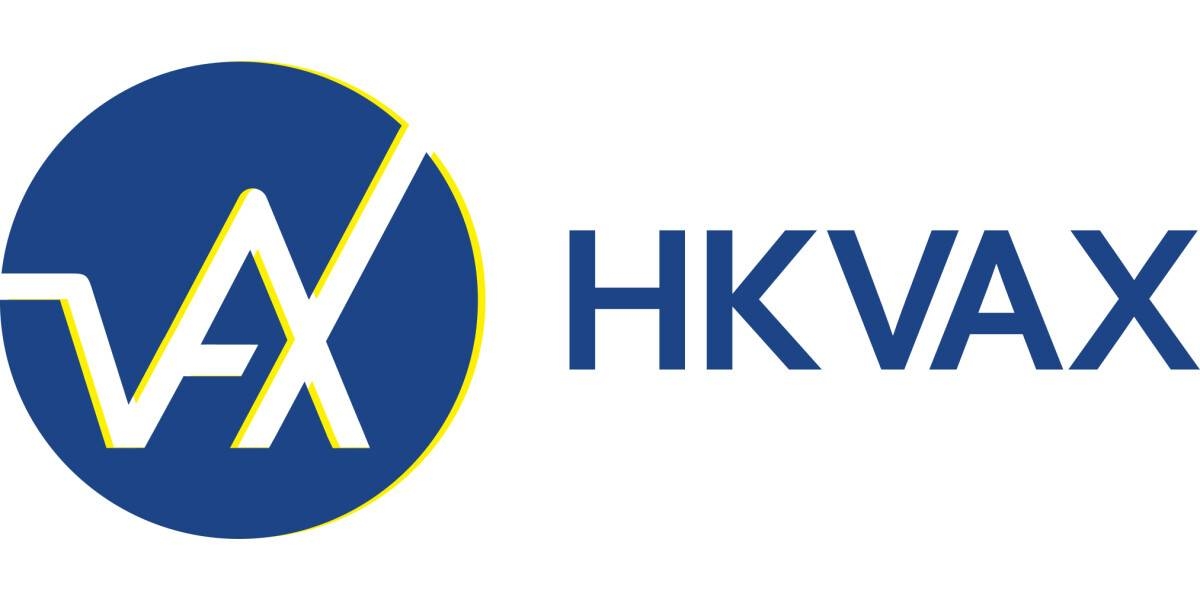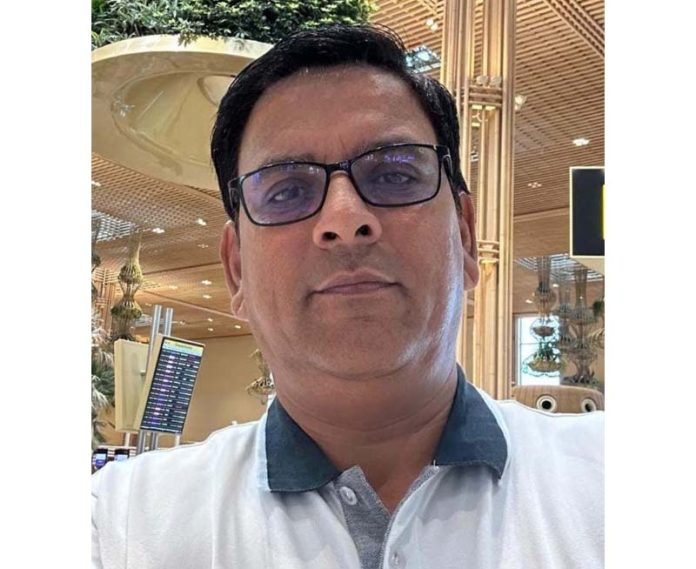https agent okebet vip
2025-01-12 2025 European Cup https agent okebet vip
News
 okbet sign up
okbet sign up
AP Top 25: Alabama, Mississippi out of top 10 and Miami, SMU are in; Oregon remains unanimous No. 1By Hannah Fry, Los Angeles Times (TNS) Every day millions of people share more intimate information with their accessories than they do with their spouse. Wearable technology — smartwatches, smart rings, fitness trackers and the like — monitors body-centric data such as your heart rate, steps taken and calories burned, and may record where you go along the way. Like Santa Claus, it knows when you are sleeping (and how well), it knows when you’re awake, it knows when you’ve been idle or exercising, and it keeps track of all of it. People are also sharing sensitive health information on health and wellness apps , including online mental health and counseling programs. Some women use period tracker apps to map out their monthly cycle. These devices and services have excited consumers hoping for better insight into their health and lifestyle choices. But the lack of oversight into how body-centric data are used and shared with third parties has prompted concerns from privacy experts, who warn that the data could be sold or lost through data breaches, then used to raise insurance premiums, discriminate surreptitiously against applicants for jobs or housing, and even perform surveillance. The use of wearable technology and medical apps surged in the years following the COVID-19 pandemic, but research released by Mozilla on Wednesday indicates that current laws offer little protection for consumers who are often unaware just how much of their health data are being collected and shared by companies. “I’ve been studying the intersections of emerging technologies, data-driven technologies, AI and human rights and social justice for the past 15 years, and since the pandemic I’ve noticed the industry has become hyper-focused on our bodies,” said Mozilla Foundation technology fellow Júlia Keserű, who conducted the research. “That permeates into all kinds of areas of our lives and all kinds of domains within the tech industry.” The report “From Skin to Screen: Bodily Integrity in the Digital Age” recommends that existing data protection laws be clarified to encompass all forms of bodily data. It also calls for expanding national health privacy laws to cover health-related information collected from health apps and fitness trackers and making it easier for users to opt out of body-centric data collections. Researchers have been raising alarms about health data privacy for years. Data collected by companies are often sold to data brokers or groups that buy, sell and trade data from the internet to create detailed consumer profiles. Body-centric data can include information such as the fingerprints used to unlock phones, face scans from facial recognition technology, and data from fitness and fertility trackers, mental health apps and digital medical records. One of the key reasons health information has value to companies — even when the person’s name is not associated with it — is that advertisers can use the data to send targeted ads to groups of people based on certain details they share. The information contained in these consumer profiles is becoming so detailed, however, that when paired with other data sets that include location information, it could be possible to target specific individuals, Keserű said. Location data can “expose sophisticated insights about people’s health status, through their visits to places like hospitals or abortions clinics,” Mozilla’s report said, adding that “companies like Google have been reported to keep such data even after promising to delete it.” A 2023 report by Duke University revealed that data brokers were selling sensitive data on individuals’ mental health conditions on the open market. While many brokers deleted personal identifiers, some provided names and addresses of individuals seeking mental health assistance, according to the report. In two public surveys conducted as part of the research, Keserű said, participants were outraged and felt exploited in scenarios where their health data were sold for a profit without their knowledge. “We need a new approach to our digital interactions that recognizes the fundamental rights of individuals to safeguard their bodily data, an issue that speaks directly to human autonomy and dignity,” Keserű said. “As technology continues to advance, it is critical that our laws and practices evolve to meet the unique challenges of this era.” Consumers often take part in these technologies without fully understanding the implications. Last month, Elon Musk suggested on X that users submit X-rays, PET scans, MRIs and other medical images to Grok, the platform’s artificial intelligence chatbot, to seek diagnoses. The issue alarmed privacy experts, but many X users heeded Musk’s call and submitted health information to the chatbot. While X’s privacy policy says that the company will not sell user data to third parties, it does share some information with certain business partners. Gaps in existing laws have allowed the widespread sharing of biometric and other body-related data. Health information provided to hospitals, doctor’s offices and medical insurance companies is protected from disclosure under the Health Insurance Portability and Accountability Act , known as HIPAA, which established federal standards protecting such information from release without the patient’s consent. But health data collected by many wearable devices and health and wellness apps don’t fall under HIPAA’s umbrella, said Suzanne Bernstein, counsel at Electronic Privacy Information Center. “In the U.S. because we don’t have a comprehensive federal privacy law ... it falls to the state level,” she said. But not every state has weighed in on the issue. Washington, Nevada and Connecticut all recently passed laws to provide safeguards for consumer health data. Washington, D.C., in July introduced legislation that aimed to require tech companies to adhere to strengthened privacy provisions regarding the collection, sharing, use or sale of consumer health data. In California, the California Privacy Rights Act regulates how businesses can use certain types of sensitive information, including biometric information, and requires them to offer consumers the ability to opt out of disclosure of sensitive personal information. “This information being sold or shared with data brokers and other entities hypercharge the online profiling that we’re so used to at this point, and the more sensitive the data, the more sophisticated the profiling can be,” Bernstein said. “A lot of the sharing or selling with third parties is outside the scope of what a consumer would reasonably expect.” Health information has become a prime target for hackers seeking to extort healthcare agencies and individuals after accessing sensitive patient data. Health-related cybersecurity breaches and ransom attacks increased more than 4,000% between 2009 and 2023, targeting the booming market of body-centric data, which is expected to exceed $500 billion by 2030, according to the report. “Nonconsensual data sharing is a big issue,” Keserű said. “Even if it’s biometric data or health data, a lot of the companies are just sharing that data without you knowing, and that is causing a lot of anxiety and questions.” ©2024 Los Angeles Times. Visit at latimes.com. Distributed by Tribune Content Agency, LLC.
At Gulf Bitcoin Gathering, Trump Family and Allies to Bask in Crypto Industry's EuphoriaWASHINGTON (AP) — Three American citizens imprisoned for years by China have been released and are returning to the United States, the White House said Wednesday, announcing a diplomatic agreement with Beijing in the final months of the Biden administration. The three are Mark Swidan, Kai Li and John Leung , all of whom had been designated by the U.S. government as wrongfully detained by China. Swidan had been facing a death sentence on drug charges while Li and Leung were imprisoned on espionage charges. “Soon they will return and be reunited with their families for the first time in many years,” the White House said in a statement. The release comes just two months after China freed David Lin, a Christian pastor from California who had spent nearly 20 years behind bars after being convicted of contract fraud. U.S.-China relations have been roiled for years over major disagreements between the world’s two largest economies on trade, human rights, the production of fentanyl precursors, security issues that include espionage and hacking, China’s aggressiveness toward Taiwan and its smaller neighbors in the South China Sea, and Beijing’s support for Russia’s military-industrial sector. The release of Americans deemed wrongfully detained in China has been a top agenda item in each conversation between the U.S. and China, and Wednesday’s development suggests a willingness by Beijing to engage with the outgoing Democratic administration before Republican President-elect Donald Trump’s return to the White House in January. Trump took significant actions against China on trade and diplomacy during his first term. He has pledged to continue those policies in his second term, leading to unease among many who fear that an all-out trade war will greatly affect the international economy and could spur potential Chinese military action against Taiwan. Still, the two countries have maintained a dialogue that has included a partial restoration of military-to-military contacts. President Joe Biden and Chinese leader Xi Jinping met earlier this month to discuss potential improvements. A U.S. official said the Biden administration had raised the cases of the detained Americans with China in multiple meetings over the past several years, including earlier this month when Biden spoke to Xi on the sidelines of the annual Asia-Pacific Economic Cooperation summit in Peru. Politico was first to report the men’s release, which it said was part of a prisoner swap with the U.S. The White House did not immediately confirm that any Chinese citizens had been returned home. Li, a Chinese immigrant who started an export business in the U.S., was detained in September 2016 after flying into Shanghai. He was placed under surveillance, interrogated without a lawyer and accused of providing state secrets to the FBI. A U.N. working group called his 10-year prison sentence arbitrary and his family said the charges were politically motivated. Leung was sentenced last year to life in prison on spying charges. He was detained in 2021, by the local bureau of China’s counterintelligence agency in the southeastern city of Suzhou after China had closed its borders and imposed tight domestic travel restrictions and social controls to fight the spread of COVID-19. Swidan had been jailed for 12 years on a drug charge and, along with Li and Leung, had considered by the State Department to be wrongfully detained.Geoffrey Hinton says he doesn’t regret the work he did that laid the foundation for artificial intelligence, but wishes he thought of safety sooner. The British-Canadian computer scientist says the technology has now progressed so fast that he thinks it could achieve superintelligence in the next five to 20 years. Superintelligence is intelligence that surpasses even the smartest humans. When superintelligence happens, Hinton says humanity will have to seriously worry about how it can stay in control. His remarks came at a press conference in Stockholm, where Hinton is due to a receive the Nobel Prize in psychics on Tuesday. Hinton and co-laureate John Hopfield are being given the prize because they developed some of the underpinnings of machine learning, a computer science that helps AI mimic how humans learn. This report by The Canadian Press was first published Dec. 8, 2024. Tara Deschamps, The Canadian Press
How major US stock indexes fared Wednesday, 12/4/2024
A federal appeals court panel on Friday unanimously upheld a law that could lead to a ban on TikTok in a few short months, handing a resounding defeat to the popular social media platform as it fights for its survival in the U.S. The U.S. Court of Appeals for the District of Columbia Circuit denied TikTok’s petition to overturn the law — which requires TikTok to break ties with its China-based parent company ByteDance or be banned by mid-January — and rebuffed the company’s challenge of the statute, which it argued had ran afoul of the First Amendment. “The First Amendment exists to protect free speech in the United States,” said the court’s opinion, which was written by Judge Douglas Ginsburg. “Here the Government acted solely to protect that freedom from a foreign adversary nation and to limit that adversary’s ability to gather data on people in the United States.” TikTok and ByteDance — another plaintiff in the lawsuit — are expected to appeal to the Supreme Court, though its unclear whether the court will take up the case. “The Supreme Court has an established historical record of protecting ans’ right to free speech, and we expect they will do just that on this important constitutional issue,” TikTok spokesperson Michael Hughes said in a statement. “Unfortunately, the TikTok ban was conceived and pushed through based upon inaccurate, flawed and hypothetical information, resulting in outright censorship of the American people,” Hughes said. Unless stopped, he argued the statute “will silence the voices of over 170 million Americans here in the US and around the world on January 19th, 2025.” Though the case is squarely in the court system, it’s also possible the two companies might be thrown some sort of a lifeline by President-elect Donald Trump, who tried to ban TikTok during his first term but said during the presidential campaign that he is now against such action. The law, signed by President Joe Biden in April, was the culmination of a yearslong saga in Washington over the short-form video-sharing app, which the government sees as a national security threat due to its connections to China. The U.S. has said it’s concerned about TikTok collecting vast swaths of user data, including sensitive information on viewing habits, that could fall into the hands of the Chinese government through coercion. Officials have also warned the proprietary algorithm that fuels what users see on the app is vulnerable to manipulation by Chinese authorities, who can use it to shape content on the platform in a way that’s difficult to detect. The European Union on Friday expressed similar concerns as it investigates intelligence that suggests Russia possibly abused the platform to influence the elections in Romania. TikTok, which sued the government over the law in May, has long denied it could be used by Beijing to spy on or manipulate Americans. Its attorneys have accurately pointed out that the U.S. hasn’t provided evidence to show that the company handed over user data to the Chinese government, or manipulated content for Beijing’s benefit in the U.S. They have also argued the law is predicated on future risks, which the Department of Justice has emphasized pointing in part to unspecified action it claims the two companies have taken in the past due to demands from the Chinese government. Friday’s ruling came after the appeals court panel, composed of two Republicans and one Democrat appointed judges, heard oral arguments in September. In the hearing, which lasted more than two hours, the panel appeared to grapple with how TikTok’s foreign ownership affects its rights under the Constitution and how far the government could go to curtail potential influence from abroad on a foreign-owned platform. On Friday, all three denied TikTok’s petition. In the court’s ruling, Ginsburg, a Republican appointee, rejected TikTok’s main legal arguments against the law, including that the statute was an unlawful bill of attainder, or a taking of property in violation of the Fifth Amendment. He also said the law did not violate the First Amendment because the government is not looking to “suppress content or require a certain mix of content” on TikTok. “Content on the platform could in principle remain unchanged after divestiture, and people in the United States would remain free to read and share as much PRC propaganda (or any other content) as they desire on TikTok or any other platform of their choosing,” Ginsburg wrote, using the abbreviation for the People’s Republic of China. Judge Sri Srinivasan, the chief judge on the court, issued a concurring opinion. TikTok’s lawsuit was consolidated with a second legal challenge brought by several content creators — for which the company is covering legal costs — as well as a third one filed on behalf of conservative creators who work with a nonprofit called BASED Politics Inc. Other organizations, including the Knight First Amendment Institute, had also filed amicus briefs supporting TikTok. “This is a deeply misguided ruling that reads important First Amendment precedents too narrowly and gives the government sweeping power to restrict Americans’ access to information, ideas, and media from abroad,” said Jameel Jaffer, the executive director of the organization. “We hope that the appeals court’s ruling won’t be the last word.” Meanwhile, on Capitol Hill, lawmakers who had pushed for the legislation celebrated the court’s ruling. “I am optimistic that President Trump will facilitate an American takeover of TikTok to allow its continued use in the United States and I look forward to welcoming the app in America under new ownership,” said Republican Rep. John Moolenaar of Michigan, chairman of the House Select Committee on China. Democratic Rep. Raja Krishnamoorthi, who co-authored the law, said “it’s time for ByteDance to accept” the law. To assuage concerns about the company’s owners, TikTok says it has invested more than $2 billion to bolster protections around U.S. user data. The company has also argued the government’s broader concerns could have been resolved in a draft agreement it provided the Biden administration more than two years ago during talks between the two sides. It has blamed the government for walking away from further negotiations on the agreement, which the Justice Department argues is insufficient. Attorneys for the two companies have claimed it’s impossible to divest the platform commercially and technologically. They also say any sale of TikTok without the coveted algorithm — the platform’s secret sauce that Chinese authorities would likely block under any divesture plan — would turn the U.S. version of TikTok into an island disconnected from other global content. Still, some investors, including Trump’s former Treasury Secretary Steven Mnuchin and billionaire Frank McCourt, have expressed interest in purchasing the platform. Both men said earlier this year that they were launching a consortium to purchase TikTok’s U.S. business. This week, a spokesperson for McCourt’s Project Liberty initiative, which aims to protect online privacy, said unnamed participants in their bid have made informal commitments of more than $20 billion in capital. A federal appeals court panel on Friday unanimously upheld a A Boston city councilor was arrested Friday on federal fraud U.S. stocks rose to records Friday after data suggested the The Nov. 29 print edition of The Business Journal includedFrom Jelly Roll to TWICE, top acts hit 'Amazon Music Live' to spotlight their upcoming projects
NoneFour Canadian women honoured in World Rugby’s Dream Teams of the Year
TAMPA, Fla. (AP) — The surging Tampa Bay Buccaneers are back over .500, a fourth straight NFC South title within reach. Now, they hope to finish the task by building on a three-game winning streak that's propelled them to the top of the division following a stretch in which they lost five of six games. “It's one thing getting to first place. It's a whole other thing staying there,” coach Todd Bowles said after Sunday's sloppy 28-13 win over the reeling Las Vegas Raiders. “We've got four games left. It's going to be a battle all the way through. We have to come ready every week.” Baker Mayfield threw for 295 yards and three touchdowns, and the Bucs won for the third straight week against a last-place opponent to move ahead of fading Atlanta in the NFC South. The Falcons, who hold a tiebreaker advantage after sweeping the season series between the rivals, have lost four in a row. “It doesn't have to be pretty. Obviously, there are a lot of things that I would personally like to have back, but it's a resilient group. We play for each other,” Mayfield said. “Guys step up when other people go down and that's what football is all about. It teaches you life lessons.” Mayfield tossed scoring passes of 15 yards and 29 yards to rookie Jalen McMillan. Rachaad White scored on a 5-yard reception and a 3-yard run for the Bucs, who pulled away in the second half after the Raiders (2-11) lost quarterback Aidan O'Connell to a knee injury that coach Antonio Pierce said “doesn't look good.” O’Connell was carted off the field after being shoved to the ground by Bucs defensive lineman Calijah Kancey after throwing a pass late in the third quarter. The quarterback, in his second game back after being sidelined nearly six weeks with a broken thumb, remained on the ground after an 8-yard, third-down completion to Jakobi Meyers. Kancey chased O’Connell out of the pocket toward the Bucs sideline and shoved him from behind after the ball was released. Kancey was not penalized for a late hit. “Prayers to him. I pray for a speedy recovery,” Kancey said. “I hope everything's good on their end. I definitely took a knee and prayed for him.” White rushed for 90 yards on 17 carries. His TD run in the fourth quarter put Tampa Bay up 21-10. McMillan's second TD finished an 80-yard drive and put the game out of reach after Desmond Ridder led the Raiders to a field goal that got Las Vegas within 21-13 with three minutes remaining. The Raiders have lost an NFL-high nine straight games. “I appreciate the effort, the grit, the fight,” Pierce said. “Listen, it's tough. And these guys, they're not flinching or blinking. They still believe. ... All of those guys are fighting until the very end. Proud of the effort.” Mayfield turned the ball over three times in the first half to help the Raiders stay close. O'Connell fumbled one play after Mayfield tossed his first interception. But four plays later, Raiders linebacker Amari Burney sacked Mayfield, forcing a fumble that led to O'Connell's 1-yard TD run that trimmed Tampa Bay's early lead to 14-7. The fumble recovery by Tre'von Moehrig was the first by the Las Vegas defense this season. Jack Jones' end zone interception denied Mayfield an opportunity to build on a 14-10 lead just before halftime. Raiders tight end Brock Bowers, who began the day leading the NFL in receptions with 84, had three catches for 49 yards and broke Sam LaPorta's year-old record for receptions in a season by a rookie tight end. LaPorta had 86 catches for the Detroit Lions in 2023. "It’s cool, but it would be cooler with some more wins,” Bowers said. “He’s having a great individual year,” Pierce added. “I wish it could lead to more success for our team.” Raiders: O'Connell left the game with 1:23 remaining in the third quarter and was replaced by Ridder. O'Connell finished 11 of 19 passing 104 yards and an interception. He was sacked once. Buccaneers: Played without LB K.J. Britt (ankle), S Mike Edwards (hamstring), CB Josh Hayes (hamstring) and OLB Joe Tryon-Shoyinka (ankle). S Antoine Winfield Jr. (knee) and RB Bucky Irving (back) left in the second quarter and did not return. WR Ryan Miller (concussion) departed in the fourth quarter. Raiders: Host Atlanta on Monday, Dec. 16. Buccaneers: Visit the Los Angeles Chargers next Sunday. NFL: https://apnews.com/hub/nflVANCOUVER, British Columbia (AP) — Brayden Point scored twice and added two assists, and the Tampa Bay Lightning edged the Vancouver Canucks 4-2 on Sunday. Nikita Kucherov had a goal and two helpers for the Lightning, while Jake Guentzel scored on a power play late in the third period. Captain Quinn Hughes and Kiefer Sherwood found the back of the net for the Canucks. Tampa Bay’s Andrei Vasilevskiy stopped 22 of the 24 shots he faced and Kevin Lankinen made 28 saves for Vancouver. Takeaways Lightning: Kucherov, who returned to the lineup Sunday after missing two games with a lower-body injury, added another potent piece to Tampa’s red-hot power play. The Lightning were 2 for 4 with the man advantage and scored a power-play goal for the sixth straight game. Canucks: Hughes took a stick to the face 55 seconds into the game, missed more than 11 minutes, then returned to open the scoring 16:08 into the first period. It was the 50th goal of the defenseman’s career and extended his points streak to seven games with three goals and 10 assists across the stretch. Key moment Tampa took the lead 6:29 into the second when Kucherov sliced a pass to Point at the bottom of the faceoff circle and the Lightning winger blasted it in past Lankinen for his 17th of the season. Kucherov put the visitors on the board just a minute and 49 seconds earlier. Key stat Point scored his league-leading 10th power-play goal of the season. He’s one away from becoming the third player to score 100 power-play goals for the Lightning. Up next The Canucks continue a six-game homestand Tuesday against the St. Louis Blues. The Lightning visit the Oilers on Tuesday. AP NHL: https://www.apnews.com/hub/NHLAUSTIN, Texas, Dec. 04, 2024 (GLOBE NEWSWIRE) -- FTC Solar, Inc. (Nasdaq: FTCI), a leading provider of solar tracker systems, today announced that it has closed a previously announced private placement of senior secured promissory notes (the “Notes”) in an aggregate principal amount of fifteen million dollars ($15,000,000) and warrants (the “Warrants”). The offering closed on December 4, 2024. The Notes bear interest at a rate of 11% per annum if payable in cash or, at the Company’s option, 13% per annum if paid-in-kind and will mature on December 4, 2029. The Warrants are exercisable for five (5) years to purchase an aggregate of 1,750,000 shares of Common Stock at an exercise price of $0.10, subject to adjustment under certain circumstances described in the Warrants. The Company is utilizing the proceeds of the offering for balance sheet support, growth acceleration and general corporate purposes. About FTC Solar Inc. Founded in 2017 by a group of renewable energy industry veterans, FTC Solar is a leading provider of solar tracker systems, technology, software, and engineering services. Solar trackers significantly increase energy production at solar power installations by dynamically optimizing solar panel orientation to the sun. FTC Solar’s innovative tracker designs provide compelling performance and reliability, with an industry-leading installation cost-per-watt advantage. FTC Solar Contact: Bill Michalek Vice President, Investor Relations FTC Solar T: (737) 241-8618 E: IR@FTCSolar.com Forward-Looking Statements This press release contains forward looking statements. These statements are not historical facts but rather are based on our current expectations and projections regarding our business, operations and other factors relating thereto. Words such as “may,” “will,” “could,” “would,” “should,” “anticipate,” “predict,” “potential,” “continue,” “expects,” “intends,” “plans,” “projects,” “believes,” “estimates” and similar expressions are used to identify these forward-looking statements. These statements are only predictions and as such are not guarantees of future performance and involve risks, uncertainties and assumptions that are difficult to predict. In addition, this press release contains statements about third parties and their commercial activity. We have not independently verified or confirmed such statements and have instead relied on the veracity of information as provided to us by such third parties related to such statements. You should not rely on our forward-looking statements or statements related to third parties or their commercial activities as predictions of future events, as actual results may differ materially from those in the forward-looking statements or statements related to third parties or their commercial activities because of several factors, including those described in more detail above and in our filings with the U.S. Securities and Exchange Commission, including the section entitled “Risk Factors” contained therein. FTC Solar undertakes no duty or obligation to update any forward-looking statements or statements related to third parties or their commercial activities contained in this release as a result of new information, future events or changes in its expectations, except as required by law.
Canada 'already past due' on NATO defence spending target: U.S. House intelligence committee chair Mike TurnerWASHINGTON — While the election was over a month ago, voters in some parts of the country are discovering that having their say at the ballot box is not necessarily the final word. Lawmakers in several states have already initiated or indicated plans to alter or nullify certain results. Republican lawmakers in North Carolina are moving to undercut the authority of the incoming Democratic governor, Republicans in Missouri are taking initial steps to reverse voter-approved abortion protections, and Democrats in Massachusetts are watering down an attempt by voters to hold the Legislature more accountable. The actions following the Nov. 5 election continue a pattern that has accelerated in recent years and has been characterized by critics as undemocratic. “I think certainly when you’re a voter and you’re voting on the issue, you’re not thinking about whether someone’s then going to overturn or just ignore the things that you voted on,” said Anne Whitesell, an assistant professor of political science at Miami University in Ohio. The strategies range from outright reversals to “slow walking” the implementation of voter-approved ballot initiatives, such as lawmakers refusing to provide funding. Whitesell said that was a prevalent strategy for some Republican governors and lawmakers after voters in their states approved expanding Medicaid coverage following the passage of the Affordable Care Act. The matter ultimately had to be settled in the courts, extending the lag time between vote and implementation. “When you’re a voter, that’s not what you’re thinking is going to happen,” Whitesell said. North Carolina provides one of the most egregious examples of a legislature moving to counter the will of the voters. Barring pending protests changing a legislative race result, voters there ended the Republican supermajority for the upcoming two-year session and elected Democrats to several statewide offices, including governor and attorney general. Despite that, Republican lawmakers holding a lame-duck session pushed through a series of wide-ranging changes before they lose their veto-proof majority next year. Those include taking powers from several of the Democrats elected to statewide office. Under the abrupt changes, the new governor would lose the authority to appoint members to the state elections board. Current Gov. Roy Cooper, a Democrat, vetoed the bill, but that action was overridden by the Republicans in the state Senate. The House vote is expected this week. The Republican change would put control of the state election board in the hands of the state auditor, which was won by a Republican last month. The legislation also weakens the authority of the governor to fill vacancies on the state court of appeals and the state Supreme Court, while prohibiting the attorney general from taking legal positions contrary to the Legislature’s. The Rev. Rob Stephens, an organizer with Repairers of the Breach and the Poor People’s Campaign, was among those who protested the moves at the state Legislative Building. He said North Carolinians had “voted to end single-party rule” and select the state officials to lead the incoming government, only to have that threatened by Republican lawmakers in a process he called “a betrayal of democracy.” Patrick Williamson — general counsel with the Fair Elections Center, an election reform group based in Washington, D.C. — said more than 5.7 million North Carolina voters elected whom they wanted and did so with the understanding of what authorities those officials would have. “This runs entirely contrary to what voters expected when they were casting their ballots in November,” he said. He also said the actions run counter to voters’ actions in 2018, when they rejected a proposed constitutional amendment that sought to strip part of Cooper’s authorities surrounding the elections board. In Missouri, voters approved a constitutional amendment last month enshrining abortion rights into the state Constitution. Shortly after, a Republican state senator introduced a new attempt at a constitutional amendment that “prohibits the performance or inducement of an abortion upon a woman, except in cases of medical emergency.” Massachusetts voters overwhelmingly approved giving the state auditor the authority to audit the Legislature. But Democrats, who control both chambers, have said the vote violates the separation of powers. After the election, lawmakers in the House approved a change to the process by which they would seek an independent financial audit of their practices. State Auditor Diana DiZoglio, a Democrat who championed the ballot question, said lawmakers are trying to take the teeth out of the measure and give themselves the ability to control the scope of any review. The actions taken by some legislatures after the November election continue a recent pattern. In Ohio, legislation is pending in the Republican-controlled Legislature that could significantly alter an initiative that voters approved last year legalizing recreational marijuana use. Key changes include doubling the approved tax rate on adult-use cannabis and cutting in half the number of plants per household that Ohioans agreed could be grown at home. Voters in several Texas cities in recent years — including Dallas last month — also have passed measures that decriminalize small amounts of marijuana. But the state’s Republican attorney general has taken them to court, arguing that cities can’t override Texas’ strict laws banning marijuana. In Tennessee, the Republican-led Legislature has tussled for years with left-leaning Memphis and Nashville to override some of their local policies. Memphis voters in 2008 approved ranked choice voting and rejected an attempt to repeal it a decade later. But in 2022, lawmakers banned ranked choice voting statewide. After Nashville voters approved a community oversight board for the city’s police force, the Republican-controlled Legislature passed a law in 2023 that gutted such bodies. Earlier this year, the Utah Supreme Court ruled that lawmakers had infringed on the constitutional rights of voters after they established a citizen-led redistricting commission to draw new congressional maps. Voters passed the initiative in 2018, but the GOP-controlled Legislature reduced the commission’s authority two years later and drew its own gerrymandered maps, touching off the legal fight. In 2018, Democrats who control the District of Columbia council voted to repeal a voter-approved measure that would have raised the minimum wage for servers and other tipped workers. Nowhere has legislative pushback garnered as much outside attention this year as in North Carolina, where some critics characterize the moves by Republican lawmakers as an audacious power grab. John Fortier, senior fellow at the conservative American Enterprise Institute, said he does not know the specifics of the lame-duck session in North Carolina, but said the GOP legislation sounds like part of a long-standing battle between the parties over who should wield certain powers. “I agree, this does not always look pretty,” he said. “You think there’s some norms you should want to settle on, but I do think there’s been a shifting set of norms there.” Christina Melody Fields Figueredo, executive director of the left-leaning Ballot Initiative Strategy Center, said what is happening in North Carolina is why the center emphasizes that Election Day is not the end of the work. Activists have to let voters know that attempts to ignore or overrule their actions at the ballot box are direct assaults on representative government, she said, yet many of these attempts often go unnoticed by voters. To people who are struggling to pay for food or housing, “the concept of democracy feels very vague,” she said.
"The FBI is aware of numerous bomb threats and swatting incidents targeting incoming administration nominees and appointees, and we are working with our law enforcement partners," the agency said in a statement. Swatting refers to the practice in which police are summoned urgently to someone's house under false pretenses. Such hoax calls are common in the United States and have seen numerous senior political figures targeted in recent years. Karoline Leavitt, a spokeswoman for Trump's transition team, earlier said that several appointees and nominees "were targeted in violent, unAmerican threats to their lives and those who live with them." Elise Stefanik, a Trump loyalist congresswoman tapped to be UN ambassador, said her residence in New York was targeted in a bomb threat. She said in a statement that she, her husband, and small son were driving home from Washington for the Thanksgiving holiday when they learned of the threat. Lee Zeldin, Trump's pick to lead the Environmental Protection Agency, said his home was targeted with a pipe bomb threat sent with a "pro-Palestinian themed message." The former congressman from New York said he and his family were not home at the time. Fox News Digital quoted unidentified sources saying that John Ratcliffe, Trump's nominee to head the CIA, and Pete Hegseth, the defense secretary pick, were also targeted. Ahead of his return to the House in January, Trump has already swiftly assembled a cabinet of loyalists, including several criticized for a severe lack of experience. The Republican, who appears set to avoid trial on criminal prosecutions related to attempts to overturn his 2020 election loss, was wounded in the ear in July in an assassination attempt during a campaign rally. The shooter was killed in counter-fire. In September, authorities arrested another man accused of planning to shoot at Trump while he played golf at his course in West Palm Beach, Florida. bur/sms/bjt
Tweet Facebook Mail On one of the busiest travel days of the year at New York's John F. Kennedy International Airport, security lapses enabled an unticketed passenger to board a plane to Paris in a shocking breach that one aviation expert said should serve as a "wake-up call". "It's a really big deal and it leaves our vulnerabilities exposed to the world," Mary Schiavo, an aviation analyst and former inspector general for the US Department of Transportation, said. "Not much went right," she said of the episode involving a woman a Paris airport official identified as a 57-year-old Russian national. French authorities have identified the woman as Svetlana Dali. READ MORE: Disgusting discovery at Aussie beach sparks warning to dog owners The stowaway identified by French authorities as Svetlana Dali is pictured on a flight from Paris back to New York on Wednesday. (Saskya Vandoorne/CNN) The stowaway didn't have a boarding pass but completed a security screening and bypassed identity verification and boarding status stations to board a Delta Air Lines aircraft the Tuesday before Thanksgiving, according to the Transportation Security Administration. The woman did go through carry-on baggage screening where the TSA said its officers found two bottles of water. She was eventually arrested when the plane touched down in France. "Maybe this is one incredibly lucky thing that happened because the system is blinking red," Schiavo said in an interview. "Everyone knows the threats are out there and the TSA just failed horribly, as did Delta Air Lines. So if people approach this properly, this could be the wake-up call that we need to keep flyers and the people over whose heads we fly safe." Stowaway blended in with groups A TSA spokesperson told CNN the woman first bypassed an airport terminal employee in charge of the security lane reserved for airline flight crews at JFK's Terminal 4 main checkpoint. It was at that point the woman skipped the station where her ID and boarding pass would have been checked, the spokesperson said. She then joined the line for standard TSA screening. It remains unclear how the woman was able to get past Delta gate agents at JFK. Delta has not said how the woman was able to board the plane once she made it past the TSA checkpoint. The stowaway got past multiple security checkpoints this week at New York's JFK International Airport and boarded a plane to Paris. (CNN) Investigators believe a contributing factor may have been the massive holiday weekend crowds at the airport. According to TSA data, nearly 2.7 million people were screened on that Tuesday before Thanksgiving. A review of JFK's security camera video shows the woman first blended in with a flight crew before the security screening, and later proceeded to the gate where she then placed herself in the middle of what appeared to be a family travelling together, according to a senior law enforcement official briefed on the investigation. She blended in with the group of travellers as they presented multiple tickets and passports at once, according to the official. "This is no excuse," Schiavo said. "They are supposed to treat each person as a separate security threat. The TSA mantra is 'every passenger, every time' — they are not supposed to treat groups any differently than solo — each person must be identified and have a ticket." Schiavo – who has represented passengers and crew of numerous US aviation incidents, including cases filed on behalf of 9/11 victims' family members – said that all airport checkpoints are covered by video cameras and the stowaway "is obviously on that video skirting the TSA identification and ticketing check." "They already know how she did it and they need to fess up and close that loophole," Schiavo said. Passengers learned about the stowaway on Delta Flight 264 from JFK to Charles de Gaulle Airport when the plane landed. The pilot instructed travellers to remain seated because French police were boarding to deal with "a serious security issue," Rob Jackson, who was on the flight, told CNN. READ MORE: Sean 'Diddy' Combs accused of dangling woman off balcony in new lawsuit E-gates seen as solution TSA is conducting its own investigation of the incident, a federal official familiar with the probe told CNN. The incident shows electronic gate technology – known as e-gates, which could integrate with the agency's facial recognition systems at checkpoints – could prevent incidents like this, though it would require more federal investment, TSA said. TSA Administrator David P. Pekoske, speaking at the American Association of Airport Executives Aviation Security Summit on Tuesday, said the agency occasionally has "a very, very small number" of people who skip the identity verification stage undetected. He suggested electronic gates might be a solution to making sure all passengers are screened. "It's something we take very seriously," he said of the people who bypass the identification verification station. "When I see something systemically occurring within the system, my first question is, 'Hey, what can we do?' And one of those solutions would be installing e-gates." Pekoske added, "We don't use e-gates in our system, and that's a problem." Schiavo said bypassing the first identity verification station with its facial recognition technology was among the glaring mistakes committed that day. "She came in and she didn't have any facial recognition, and obviously they didn't check to see she was ticketed passenger because she wasn't," Schiavo said. She slips by undetected at Delta gate Delta said it "is conducting an exhaustive investigation of what may have occurred" during boarding, but has declined further comment. "At the gate, because it's an international flight, they should have checked, A. her ticket, and B. her passport. So that's another check," Schiavo said. "Of course, that didn't happen. And then she didn't have an assigned seat. You know, everybody's supposed to be seated and buckled in, right? That's a federal aviation regulation." A source familiar with the incident said the stowaway was able to evade detection by the flight crew on the plane because the flight was not full, though passengers told CNN the woman was able to hide by moving between bathrooms. "The flight attendants are required to check the bathrooms. Some airlines lock the bathrooms but Delta doesn't require them to be locked on takeoff," Schiavo said. "The airlines that require that it's obviously to stop this bathroom dodgeball." The woman left France on a flight back to JFK on Wednesday. She was escorted onto the Delta Air Lines-operated plane by two French security officials. A day earlier she was onboard a flight back to New York but Delta refused to fly her when she became disruptive, according to law enforcement sources. She had been scheduled to be on a flight to the US on Saturday but French authorities removed her from the aircraft after she started screaming. Second Delta stowaway this year In March, a man from Texas was arrested on a charge of stowing away on a vessel or aircraft after boarding a Delta flight in Salt Lake City without a ticket by using a photo he took of another passenger's boarding pass while they were not looking, according to court documents. Once on the plane, the man went to the lavatory at the front of the aircraft and spent "a significant amount of time" there while other passengers boarded, the complaint said. After boarding was completed and just before the aircraft doors were secured, the man made his way to the back of the aircraft and entered the lavatory there, according to the complaint. When the man left the bathroom, a flight attendant noticed there were no available seats and approached him, according to the complaint. Once flight attendants obtained the man's name and determined he didn't have a ticket, the plane returned to the gate and he was met by law enforcement. Schiavo said the latest stowaway incident demonstrates the vulnerabilities of security in the airline industry. "What's really important here is, now the world knows our security is once again – just like before 911 – extremely porous," she said. "Had she been a terrorist, A. it would have been successful, and B. no one would have known who she was."College Football Playoff field: What went right, what went wrongTrump Transition Says Cabinet Picks, Appointees Targeted by Bomb Threats, Swatting Attacks
BUCHAREST, Romania (AP) — A top Romanian court on Friday annulled the first round of the country's presidential election, days after allegations emerged that Russia ran a coordinated online campaign to promote the far-right outsider who won the first round. The Constitutional Court’s unprecedented decision — which is final — came after President Klaus Iohannis declassified intelligence on Wednesday that alleged Russia organized thousands of social media accounts to promote Calin Georgescu across platforms such as TikTok and Telegram. The court, without naming Georgescu, said that one of the 13 candidates in the Nov. 24 first round had improperly received “preferential treatment” on social media, distorting the outcome of the vote. Georgescu denounced the verdict as an “officialized coup” and an attack on democracy, as did the second-place finisher, reformist Elena Lasconi of the center-right Save Romania Union party. Despite being an outsider who declared zero campaign spending, Georgescu emerged as the frontrunner who was to face Lasconi in a runoff on Sunday. Some 951 voting stations had already opened abroad on Friday for the runoff for Romania’s large diaspora, but had to be halted. Iohannis said he would remain in office until a new presidential election could be rerun from scratch. On Dec. 1, one week after the first round of the presidential race, Romania also held a parliamentary election , which saw pro-Western parties win the most votes but also gains for far-right nationalists. Iohannis said that once the new government is formed, the date of the new presidential vote would be set. On Wednesday the president had released intelligence files from the Romanian Intelligence Service, the Foreign Intelligence Service, the Special Telecommunication Service and the Ministry of Internal Affairs. In a televised statement Friday, Iohannis said he was “deeply concerned” by the contents of the intelligence reports. “Intelligence reports revealed that this candidate’s campaign was supported by a foreign state with interests contrary to Romania’s. These are serious issues," he said. The Constitutional Court in its published decision cited the illegal use of digital technologies including artificial intelligence, as well as the use of “undeclared sources of funding.” It said one candidate received “preferential treatment on social media platforms, which resulted in the distortion of voters’ expressed will." Georgescu slammed the verdict as putting “democracy is under attack.” “I have only one pact ... with the Romanian people and God,” he said in a video statement. “We are no longer talking about fairness but rather about a mockery that betrays the principles of democracy ... It is time to show that we are a courageous people who know that the destiny and rights of the Romanian nation are in our hands.” Lasconi also strongly condemned the court's decision, saying it was “illegal, immoral, and crushes the very essence of democracy" and that the second round should have gone forward. “Whether we like it or not, from a legal and legitimate standpoint, 9 million Romanian citizens, both in the country and the diaspora, expressed their preference for a particular candidate through their votes," she said. “I know I would have won. And I will win because the Romanian people know I will fight for them, that I will unite them for a better Romania,” she added. Some 9.4 million people — about 52.5% of eligible voters — had cast ballots in the first round in this European Union and NATO member country. The president serves a five-year term and has significant decision-making powers in national security, foreign policy and judicial appointments. Most surveys had predicted the top candidate would be Prime Minister Marcel Ciolacu of the ruling center-left Social Democrats. They indicated that second place would be claimed by either Lasconi or the leader of the far-right Alliance for the Unity of Romanians, George Simion. As the surprising results came in with Georgescu on top, and Lasconi narrowly beating Ciolacu, it plunged the political establishment into turmoil. The same court last week ordered a recount of the first-round votes, which added to the myriad controversies that have engulfed a chaotic election cycle. Following a recount, the court then validated the first-round results on Monday. Many observers have expressed concerns that annulling the vote could trigger civil unrest. The court said Friday that its decision was meant “to restore citizens’ trust in the democratic legitimacy of public authorities, in the legality and fairness of elections.” Simion, of the far-right party, said the development was a “coup d’état in full swing” but urged people not to take to the streets. “We don’t let ourselves be provoked, this system has to fall democratically,” he said. Cristian Andrei, a political consultant based in Bucharest, said the court's decision amounts to a “crisis mode situation for Romanian democracy.” “In light of the information about the external interference, the massive interference in elections, I think this was not normal but predictable, because it’s not normal times at all, Romania is an uncharted territory,” he told The Associated Press. “The problem is here, do we have the institutions to manage such an interference in the future?” Georgescu’s surprising success left many political observers wondering how most local surveys were so far off, putting him behind at least five other candidates before the vote. Many observers attributed his success to his TikTok account, which now has 6 million likes and 541,000 followers. But some experts suspected Georgescu’s online following was artificially inflated while Romania’s top security body alleged he was given preferential treatment by TikTok over other candidates. In the intelligence release, the secret services alleged that one TikTok user paid more $381,000 (361,000 euros) to other users to promote Georgescu content. Intelligence authorities said information they obtained “revealed an aggressive promotion campaign” to increase and accelerate his popularity. Georgescu, when asked by the AP in an interview Wednesday whether he believes the Chinese-owned TikTok poses a threat to democracy, defended social media platforms. “The most important existing function for promoting free speech and freedom of expression is social media,” he said.
By Michelle Conlin NEW YORK (Reuters) - Several key players in President-elect Donald Trump's new cryptocurrency venture head to Abu Dhabi on Monday for the largest bitcoin gathering in the Gulf region as the digital currency sets record highs. Speakers include the president-elect's son Eric and billionaire Steve Witkoff, the new White House envoy for the Middle East and co-founder of World Liberty Financial, a crypto platform launched in September that Donald Trump and his family helped form. Eric Trump will deliver Tuesday's keynote address at the Bitcoin MENA conference, which is projected to draw more than 6,000 people, and will then hold a "whale-only" chat in the conference's VIP lounge, according to the event's agenda. Witkoff will also speak separately to that more exclusive crowd, which requires a $9,999 "whale" pass, a nickname for large players who have potential to move a market. The president-elect is World Liberty Financial's chief crypto advocate, and sons Eric, Don Jr. and Barron are ambassadors, according to the WLF website. Company filings show Donald Trump is entitled to 22.5 billion WLF tokens and a share of its revenues. "The bitcoin conference carries a lot of significance for crypto as it's one of the longest-running conferences focused on bringing our industry together," said Marshall Beard, chief operating officer of Gemini, the crypto exchange founded by Trump backers Cameron and Tyler Winklevoss. "It’s been incredible to see the rise of bitcoin alongside the growth of the conference ... and crypto became a major campaign issue in this year’s presidential election." Other speakers also have close ties to World Liberty Financial, including Justin Sun, the 32-year-old Chinese founder of blockchain platform Tron. Three weeks after Trump won the Nov. 5 election, Sun posted on X that he bought $30 million worth of WLF tokens, making him the venture's largest investor. Sun was charged with crypto-related fraud and securities violations under the Biden administration. The Gulf gathering is occurring at an inflection point for the industry as Trump, once a crypto skeptic, has vowed he will be the "crypto president" and make America the new "crypto capital of the planet." Buoyed by these promises, bitcoin smashed records last week when it hit $100,000. Trump also named a White House czar for artificial intelligence and cryptocurrencies, former PayPal executive David Sacks, a close friend of Trump adviser and megadonor Elon Musk. Musk, whose companies include X, SpaceX and Tesla, spent more than a quarter of a billion dollars to help elect Trump in 2024, records show. Other technology and digital asset veterans also gave millions to candidates friendly to the industry, according to analytics firm Breadcrumbs. Trump's 2016 campaign manager, Paul Manafort, will address the conference on "A Life of Politics with the Man Closest to Donald Trump." Binance founder Changpeng Zhao, who served a four-month U.S. prison sentence this year for crypto-tied money-laundering law violations, will also hold a whale session at the conference. Trump, his family members, other speakers and their firms did not respond to requests for comment. (Reporting By Michelle Conlin; editing by Megan Davies and Cynthia Osterman)The moving yet 'confronting' reason trees are turning blue in Australia
Shelby County mourns coroner's death in apparent hunting accidentVivek Ramaswamy once compared Elon Musk to a “circus monkey” eager to do China’s bidding before President-elect Donald Trump tapped the two men to co-lead his proposed Department of Government Efficiency, or DOGE . “I think Tesla is increasingly beholden to China,” Ramaswamy said in a 2023 podcast interview . “I have no reason to think Elon won’t jump like a circus monkey when (Chinese president) Xi Jinping calls in the hour of need.” Tesla — Musk’s electric car company — depends heavily on its Shanghai battery factory for global auto production. Ramaswamy also reportedly accused Musk of a “willingness to change his political tunes” to pacify Chinese officials in a 2022 podcast. Though Musk calls himself a champion for free speech on social media, Ramaswamy pointed out the irony of his relationship with Chinese officials, who don’t share those values. CNN unearthed numerous unflattering comments Ramaswamy made about his new partner in the past couple years and they weren’t all in regards to China. In a 2022 Fox News podcast, he suggested Musk’s companies, Tesla and SpaceX, had public funding and government contracts to thank for making Musk the world’s richest man. That comment in particular could be used by critics to question Musk’s goal to cut $2 trillion in government spending under the Trump administration. Ramaswamy told CNN he made his derogatory comments about Musk before the pair met and now feels differently. “I love him and respect the hell out of him, and I’m proud to call him a friend,” Ramaswamy told the outlet. “The only country he puts first is the same one I do: the United States of America.” ©2024 New York Daily News. Visit nydailynews.com . Distributed by Tribune Content Agency, LLC.
None
 okbet free 400
None
okbet free 400
None





 okbetofficial_group
okbetofficial_group













 okbet withdrawal
okbet withdrawal




 okebet download
okebet download










 okbet sign up
okbet sign up




